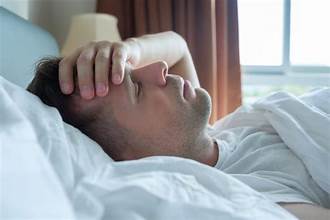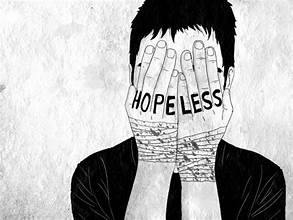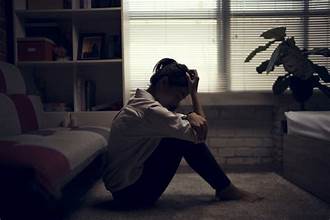Massage Therapy and Depression: A Healing Touch Beyond the Surface
- Lauren Walker
- Aug 2, 2025
- 4 min read
Depression isn't just "feeling down." It's a complex, often invisible condition that affects the body just as much as the mind. While talk therapy, medication, and lifestyle changes are core parts of treatment, many people are discovering the benefits of complementary care—like massage therapy—as part of a holistic approach to managing depression.
Massage therapy isn't a cure for depression. But it can be a powerful tool for easing symptoms, supporting emotional well-being, and reconnecting with your body when it feels like your mind is stuck in a fog. Let’s explore how.
Understanding the Mind-Body Connection
Depression doesn’t just affect your thoughts—it shows up physically. Common symptoms include:
Chronic fatigue or low energy
Muscle tension and aches
Sleep disturbances
Appetite changes
Feelings of disconnection from the body
Massage works at the intersection of the physical and emotional. By relaxing the body and calming the nervous system, it creates space for the mind to slow down, restore balance, and reconnect.
How Massage Therapy Helps with Depression
1. Lowers Cortisol, the Stress Hormone
Research shows that massage therapy can significantly reduce cortisol levels in the body. Cortisol is the hormone released during stress—and high levels over time can contribute to anxiety, depression, and inflammation. Lowering cortisol can help break the cycle of tension, overwhelm, and emotional fatigue.
2. Boosts Mood-Stabilizing Chemicals
Massage naturally increases the production of serotonin and dopamine, neurotransmitters responsible for feelings of well-being, pleasure, and emotional balance. These are the same brain chemicals many antidepressants are designed to regulate.
3. Improves Sleep Quality
Many people with depression struggle with insomnia or restless sleep. Massage therapy activates the parasympathetic nervous system (our “rest and digest” state), which can lead to deeper, more restorative sleep—without medication.
4. Reduces Physical Pain and Tension
Depression and chronic pain often go hand-in-hand. Therapeutic massage helps release muscle tension, reduce inflammation, and ease headaches or body aches—making daily life feel a little more manageable.
5. Provides Safe, Compassionate Touch
For many people living with depression, touch is something they may be missing—either because they isolate, feel numb, or are overwhelmed by sensory input. Massage offers nonjudgmental, safe, intentional touch—which can rebuild trust in the body, reduce feelings of loneliness, and support nervous system regulation.
What the Research Says
Studies have shown that massage therapy can significantly reduce symptoms of depression and anxiety, especially when used consistently. A meta-analysis published in the Journal of Clinical Psychiatry found that people receiving massage therapy reported significantly lower scores on depression scales compared to control groups.
While results vary, what’s consistent is that many people report feeling more grounded, hopeful, and physically at ease after massage therapy.

What to Expect in a Massage Session for Depression
A calm, quiet environment where you can relax without pressure
A therapist who listens and tailors pressure and techniques to your comfort
A focus on gentle, flowing techniques (like Swedish massage) that calm the nervous system
No pressure to talk—you can share as much or as little as you like
Let your therapist know if you’re struggling with depression so they can support you appropriately. All sessions should be client-centered and respectful of your emotional state.
Massage Therapy as Part of a Larger Support System
Massage is not a replacement for mental health treatment, especially in cases of severe or clinical depression. But when combined with therapy, medication and/or supplements, diet changes, support groups, or movement practices like yoga, it can become a vital part of your self-care toolkit.

Small Steps Matter
When you’re living with depression, even making an appointment can feel like a mountain to climb. But showing up for yourself—lying on the table, taking deep breaths, letting go of tension—is a profound act of healing.
You don’t have to talk, explain, or do anything "right." You just have to be there, and let your body receive.
Conclusion: Healing Happens in Layers
Massage therapy isn't just about relaxation—it's about reconnection. Reconnection to your breath, your body, and the part of you that wants to feel better. In the quiet of a massage room, with skilled hands and intentional touch, healing begins—not all at once, but in gentle layers.
If you or someone you love is dealing with depression, consider massage therapy as a supportive, compassionate way to care for the body while tending to the mind.

Relish Well-ness to the Core with our Relaxing Massage Sessions: Wellness Rituals offers effective alternative healing therapies such as Thai Yoga Massage or our Table Top Stretch Sessions. This unique healing therapy incorporates Yoga, pressure points, and reflexology, aiming to reduce body fatigue.
Relish A True Sense of Well-Being Through Expert Services
We use experienced approaches to promote good health in our clients through relaxing spa treatments and life-changing wellness services because We Care for You the Most!
Thank you for following us! Don't forget to find us via our website @www.myrituals.me or check out our latest blog posts on our Facebook and Instagram pages.
Let's stay connected through our social networks including Facebook, Instagram, and LinkedIn all are found at
Facebook : https://www.facebook.com/wellnessritualsme
Instagram: https://www.instagram.com/wellnessritualsme
You can always BOOK ONLINE!
Orlando Location: www.vagaro.com/mywellnessrituals
Longwood Location: www.vagaro.com/wellnessrituals-longwood
Text to Book: 407-535-2331. Thank you for following us!
You'll see that we have something new posted every day - so keep checking back!








Comments